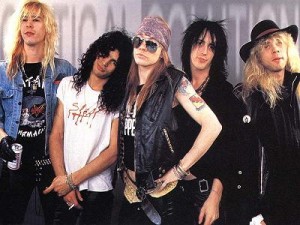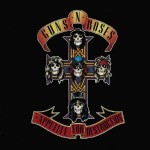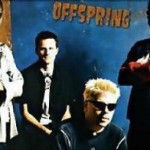 By Jae-Ha Kim
By Jae-Ha Kim
Chicago Sun-Times
May 19, 1991
Guns N’ Roses have been hailed and assailed as everything from rock ‘n’ roll’s messiahs to self-indulgent spoiled brats living out a hedonistic fantasy. They are musicians whose musical justification always has packed a stronger punch than the convoluted interviews they don’t readily grant anymore.
Now on the eve of its first major headlining tour, (which kicks off Friday and Saturday at Alpine Valley Music Theatre in East Troy, Wis.), the five-man band from Hollywood, Calif., is displaying a schizophrenia that suggests the musicians have taken both the flattering and unfavorable stories about them far too seriously.
Fans and critics will have to wait for the much procrastinated Guns N’ Roses sequel to 1987’s “Appetite for Destruction,” which sold 12 million copies worldwide. The band’s upcoming LP, “Use Your Illusion,” is supposed to be more cohesive than either “Appetite” or “GNR Lies,” which included four previously recorded, independently produced tracks and was rush-released to capitalize on the band’s popularity. And on “Double Talking Jive,” a track from the new album, the group seems to have settled into a melodic vinyl phase that probably will be purged in live shows.
Originally slated for release last fall, “Use Your Illusion” was pushed back to winter, then spring and then in conjunction with their concert dates at Alpine. Though GNR’s label, Geffen Records, said the LP will be out next month, July is more likely; the album’s release has been delayed so often that its title has become synonymous with tardiness within the industry.
“(Critics) are looking for this record to suck,” bassist Duff McKagan said in a recent with the “Hard N’ Heavy” video magazine. “If (the press) is getting so hard core about us and they don’t even like us, why do they even write about us?”
Most critics agree that, idiosyncrasies aside, Guns N’ Roses is the most vital band to slide into leather pants since the Doors. Although the tattoos and brief flirtation with glam makeup and hair mousse seemingly put the band in the same fluffy-haired category as Motley Crue and Poison, Guns N’ Roses write songs that have more in common with the realistically angry spirit of punk rockers such as the Sex Pistols and rappers like Public Enemy, who take a hard-core approach to their songs.
The Gunners’ sound is based on a mix of rock, rhythm and blues, punk, pop and, more often than not, a cacophonous barrage of musical noise, courtesy of guitarist Slash. The chameleon-voiced Rose fluctuates his singing style to suit the needs of the text, varying from sharp, almost painful-to-listen-to barks that are more piercing than the earrings he wears on his nipples, to a serene vocal style that shows he has a remarkably strong command of his oft-abused cords. The band’s music isn’t particularly pretty – and it’s often controversial. Graphic lyrics sometimes border on racism, sexism and sadomasochism.
The song that has caused the greatest stink is “One in a Million,” for which the band, and Rose in particular, was accused of racism. The song can be interpreted either as out-and-out hatred or merely the paranoia of a musician whose most vivid memory of moving to Los Angeles is warding off a homosexual attack. Written by Rose, “Million” includes such offensive lines as “Police and niggers, that’s right, get out of my way. Don’t need to buy none of your gold chains today. . . . Immigrants and faggots, they make no sense to me. They come to our country and think they’ll do what they please – like start some mini-Iran, or spread some (deleted) disease.”
When critics point their fingers at Rose, they leave out one of the song’s most telling lines, in which Rose questions his own sanity: “Some say I’m crazy, I guess I’ll always be.” (Rose has been diagnosed by a psychiatrist as a manic-depressive.)
In print, without Slash’s soft acoustic playing to offset the unbridled brutality of Rose’s words, the lyrics are atrocious. Rose repeatedly has denied being prejudiced and said that had Slash, who is half black, been offended by the lyrics, the band wouldn’t have recorded the song.
Is the band racist and sexist? Sure. But its musicians won’t admit it, or maybe don’t even know it. And to many of their fans, what the Gunners have to say really isn’t as important as how they say it. For instance, the lyrics to “Used To Love Her” has the tag line, “I used to love her, but I had to kill her,” which is a sick commentary about any relationship, but the upbeat melody, weirdly enough, belies the lyrical perversion.
GNR isn’t the first band whose bleak lyrics have, on occasion, become secondary to joltingly powerful music. Careers have built around songs that, if dissected, would indicate that the performers need therapy. How many Beatlephiles hummed along as John Lennon as blithely sang, “I’d rather see you dead little girl than to see you with another man” in “Run for Your Life”? And how many Doors fans writhed with pleasure as Jim Morrison sang of Oedipal lust?
Perhaps tired of explaining their music or angry at all the media attention their boozing and brawling has attracted, the Gunners have “protected” themselves from the press by requiring prospective interviewers to sign a two-page document that gives them approval rights over any “article, story, transcript or recording connected with the interview.” They issued a similar document for photographers. How ironic, since band members wear T-shirts emblazoned with the words “F- – – Censorship.”
Although a few publications such as Guitar World gave in to this literary extortion, most major magazines and dailies refused to interview the band under those conditions. If not for ethical reasons, the idea of having, say, rhythm guitarist Izzy Stradlin, the only Gunner with a high school diploma, copy edit a story is absurd.
While the band’s life-span may be as short as its collective quick-fused temper, how the members hold out on this tour will be a better indication of whether internal bickering and outside forces have interfered with the group’s creative process. Guns N’ Roses may go down in music history as either one of America’s most vital bands, or as a misguided creation of music industry hype.





